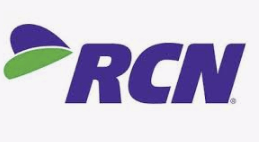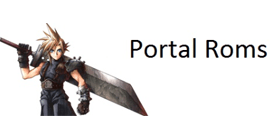Internet Provider RCN Asks Court to Dismiss Piracy Liability Lawsuit
samedi 25 janvier 2020 à 17:56 Last summer several major music companies filed a lawsuit against Internet provider RCN. Helped by the RIAA, they argued that the ISP turned a blind eye to pirating subscribers.
Last summer several major music companies filed a lawsuit against Internet provider RCN. Helped by the RIAA, they argued that the ISP turned a blind eye to pirating subscribers.
The lawsuit is in many regards similar to the ones against other ISPs, such as Cox, Grande, and Charter, which were all accused of failing to terminate the accounts of repeat infringers.
According to the labels, RCN knew that some of its subscribers were frequently distributing copyrighted material, but failed to take any meaningful action in response. To compensate for this alleged inaction the music companies demand damages.
Last month we saw that the stakes are high in these cases. Following a two week trial, Cox was found guilty with the jury awarding a billion dollars in damages. This is something RCN wants to avoid.
Fighting back, the company submitted a motion to dismiss the lawsuit at the New Jersey federal court this week.
RCN starts by pointing out that the music companies don’t accuse it of hosting any infringing material. Nor do they argue that the ISP promoted its service to illegally share content.
“Instead, the thrust of Plaintiffs’ case is that RCN is secondarily liable because it did not terminate the internet access of subscribers accused of copyright infringement,” RCN writes.
The use of the term “accused” is important here. These accusations come from third-party outfit Rightscorp which sent huge amounts of infringement notifications bundled with settlement requests.
According to RCN, Rightscorp used the threat of legal action to extract settlements from subscribers. With this business model, more notices would generally result in more revenue.
“This means that Rightscorp is incentivized to send huge volumes of infringement accusations, without regard to the amount or frequency of any actual copyright infringement,” the ISP notes.
The music companies don’t claim that they used Rightscorp’s services themselves. Instead, RCN believes that the rightsholders acquired Rightscorp’s data after the fact, to pursue legal campaigns against ISPs.
In any case, the ISP has very little faith in the accuracy of Rightscorp’s piracy notifications and clearly disregards them as credible evidence.
“No reasonable ISP would accept Rightscorp’s copyright infringement allegations as credible, much less actionable. Rightscorp does not provide any evidence whatsoever demonstrating that a given internet user possessed or shared the copyrighted content in question,” RCN writes.

Continuing its motion, RCN explains step by step why the music companies’ claims don’t hold up, starting with the accusation of contributory infringement.
Liability for contributory infringement can only take place if an ISP is aware of direct copyright infringements and actively encourages or induces this activity. That’s not the case, according to RCN, as Rightcorp’s notices are not evidence of direct infringement.
“Rightscorp’s conclusory email allegations cannot confer knowledge of copyright infringement because they are unsupported and unverifiable,” RCN writes.
The ISP also emphasizes that Rightcorp’s notices are not DMCA compliant. They don’t provide sufficient information to disable or remove infringing content, nor do they properly identify the works, as there is no mention of copyright registration numbers.
In addition, RCN points out that its Internet service has substantial non-infringing uses, adding that the music companies failed to show that the ISP promoted or contributed to any infringing uses of its network.
“Plaintiffs only allege that RCN provided the alleged direct infringers with internet access. This is far too attenuated from the infringing conduct to constitute material contribution,” RCN adds.
The claim of liability for vicarious copyright infringement also falls flat, RCN argues. The ISP says doesn’t profit from any of the alleged infringing activity nor does it have the ability to control it.
Finally, the music companies’ claim of liability for direct infringement can’t be proven either, simply because there’s no hard evidence that any RCN subscribers engaged in piracy.
“Taking Plaintiffs’ allegations as true, they cannot show that any infringing content was unlawfully obtained over RCN’s network, or that any user of RCN’s engaged in conduct directly infringing Plaintiffs’ distribution rights,” RCN notes.
According to the ISP, the music companies failed to state a proper claim so it, therefore, asks the court to dismiss the complaint.
The music companies still have the option to reply to RCN’s arguments after which the court will rule on the matter.
In related cases, other ISPs have submitted similar motions, with some being more successful than others. Grande managed to have the vicarious infringement claim dropped, for example, but Cox’s attempt to do the same failed.
…
A copy of RCN’s motion to dismiss the music companies’ complaint is available here (pdf).
Source: TF, for the latest info on copyright, file-sharing, torrent sites and more. We also have VPN reviews, discounts, offers and coupons.



 In recent years, Swedish movie outfits and Hollywood studios, including Disney, Paramount Pictures and Warner Bros, have been working hard to get local ISPs to block The Pirate Bay.
In recent years, Swedish movie outfits and Hollywood studios, including Disney, Paramount Pictures and Warner Bros, have been working hard to get local ISPs to block The Pirate Bay.


